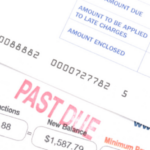Merchant cash advances (MCAs) have become a popular financing option for small businesses seeking quick and easy access to capital. These advances provide immediate funds in exchange for a portion of the business’s future debit and/or credit card sales.
While MCAs are legal, they also present several challenges that can ensnare unsuspecting business owners. Read on to learn about some of the key legal issues associated with merchant cash advances that you should be wary of if you’re thinking about borrowing.
Potential Legal Issues with Merchant Cash Advance
Excessive Interest Rates
One of the most contentious legal issues surrounding MCAs is the potentially usurious interest rates charged. MCAs are structured as commercial transactions, not loans, thus skirting around the laws that cap interest rates. However, when the costs associated with MCAs are calculated as an annual percentage rate (APR), they can exceed the usury limits set by many states. This has led to numerous legal battles where businesses argue that MCAs are disguised loans meant to circumvent usury laws.
Confession of Judgment (COJ)
Some MCA agreements include a “confession of judgment” clause, in which a borrower agrees to let the provider obtain a judgment against them without a trial if they breach the contract. (Often, this happens when the business defaults on their payments.) This means the MCA funder can quickly secure a judgment for the amount owed, plus any additional fees, without going through the standard court process.
COJs are controversial because they can bypass the borrower’s right to defend themselves in court. Several states have restrictions or bans on confessions of judgment, and their use can raise serious legal issues.
Personal Guarantees
Merchant cash advance companies may require a personal guarantee from the business owner, which can lead to personal liability issues. If the business fails to repay the advance, the provider can file a lawsuit and pursue the personal assets of the individual who signed the guarantee.
Other Contract Terms and Legal Complications
The complexity and lack of standardization in MCA agreements can lead to confusion and misinterpretation. Businesses often struggle to understand the terms, including the retrieval rate, holdback amount, and total payback amount. Misleading terms and ambiguous language in contracts can lead businesses to agree to terms that are unfavorable and potentially detrimental to their financial health. Legal disputes often arise from allegations of deceptive practices and misrepresentations by MCA providers.
Collections Practices and Legal Scrutiny
MCA providers are known for their aggressive collection practices, which can include daily withdrawals from a business’s bank account. These practices can strain a business’s cash flow and operations. Legal issues arise when these practices breach the terms of the agreement or violate state laws governing debt collection. Businesses have taken legal action against MCA providers for practices considered to be predatory or excessively aggressive.
Legal Safeguards for Business Owners
Federal Trade Commission Guidelines
There are no standardized federal laws or regulations surrounding MCAs. That said, when a business falls victim to misleading claims or deceptive tactics, the FTC often steps in.
If you think an MCA provider engaged in deceptive practices or broke the law, it’s important to report them to the FTC.
Proactive Measures for Business Owners
There are several proactive measures that business owners can take to protect themselves against potential legal issues when dealing with MCA companies:
Thoroughly Review and Understand Contracts
Make sure you read the fine print and understand all terms and conditions before signing an MCA agreement. Pay special attention to the repayment terms, factor rate, and any additional fees or clauses that could impact your business financially.
Also, keep in mind that some MCA agreements include a confession of judgment clause, which can severely limit your legal rights in a dispute. Understand the implications of such clauses and consider avoiding them if possible.
Research the MCA Provider
Look into the MCA company’s background, including customer reviews, complaints, and any previous legal actions against them. The Better Business Bureau (BBB) and online forums can provide valuable insights.
It’s also important to ensure the MCA provider is licensed to operate in your state if such regulation exists. Some states have specific licensing requirements for lenders and financial institutions.
Understand Repayment Terms
Be aware that MCAs typically require daily payments, which can significantly impact your cash flow. Ensure your business can sustain these payments over the term of the advance.
Look Into Alternative Financing Options
Explore other financing options that may be more favorable or offer better terms. This could include traditional bank loans, SBA loans, lines of credit, or crowdfunding.
Help for MCA Legal Issues
A merchant cash advance debt relief attorney can help resolve MCA legal issues. Before entering into an MCA agreement, they can evaluate the contract to identify and negotiate away potentially harmful terms. And if disputes arise post-agreement, an experienced MCA attorney can offer indispensable support, from resolving conflicts through mediation to providing legal representation in court against unfair practices or in litigation scenarios.
Tayne Law Group is a New York-based law firm that offers a transparent and straightforward process. Our team is made up of experienced attorneys who resolve MCA debt every day. Our team will work with you to come up with a customized approach to resolving your merchant cash advance debt (and other types of business debt, too). We strive to protect your business cash flow and operations while negotiating the best possible agreement with your MCA provider.
Give us a call at (866) 890-7337 or fill out our short contact form for a free, no-obligation phone consultation. We never sell or share your information and will keep your matter confidential.








